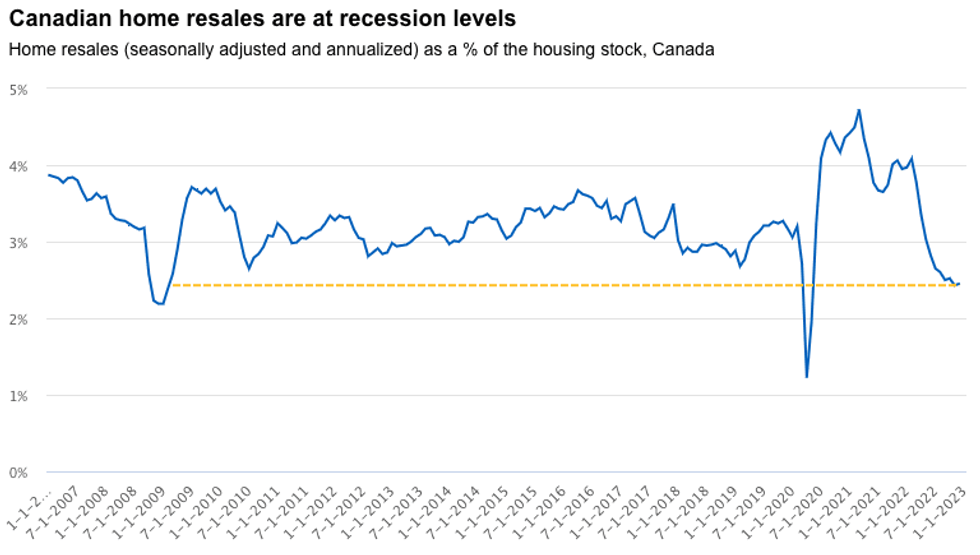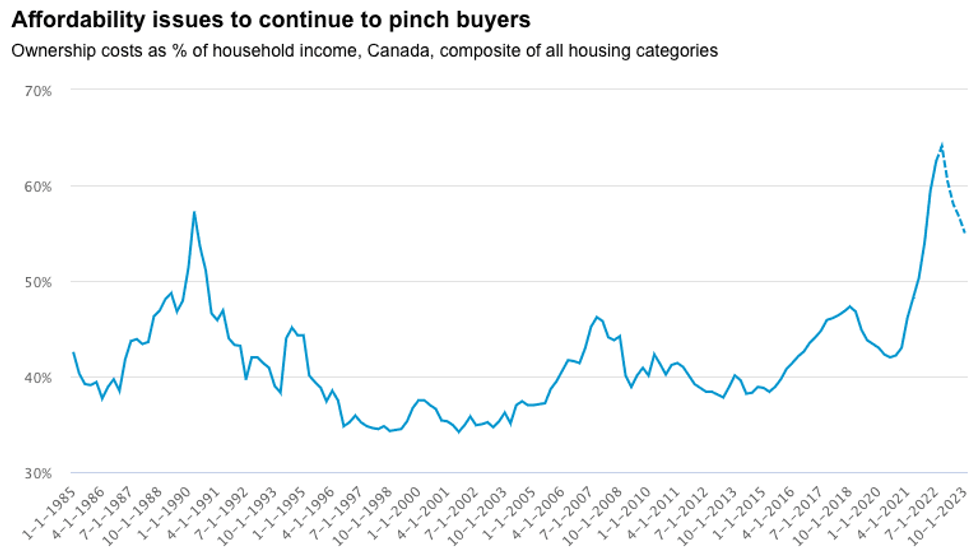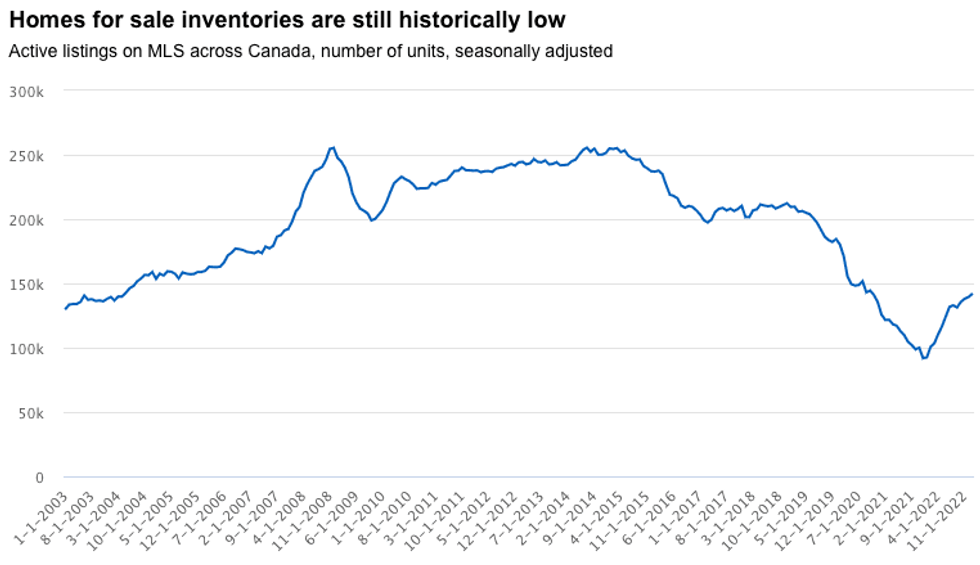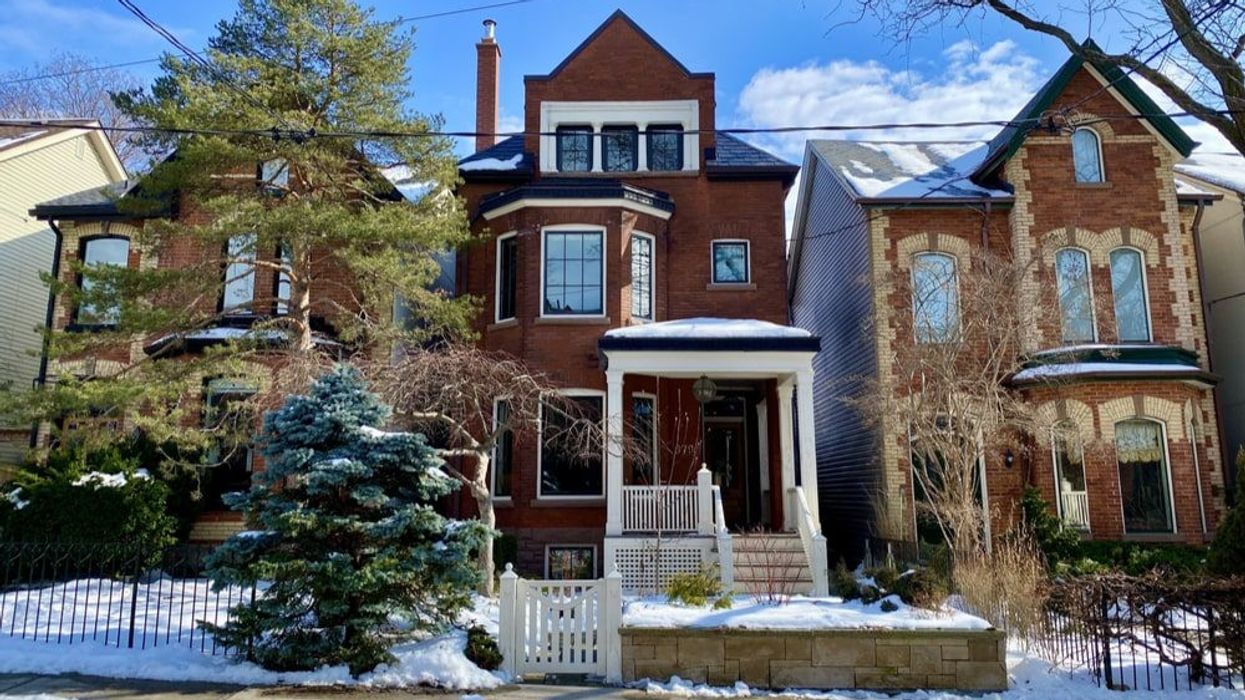Although it's starting to slow, Canada's housing market correction "has yet to run its course," with roughly half of the anticipated national price decline still to come.
Robert Hogue, Assistant Chief Economist at RBC, revealed in a new Special Housing Report that resale activity, which is currently at "recession levels," is expected to hit bottom sometime this spring.
Accounting for the growth in housing stock, national resales are the quietest they've been since the 2008-2009 global financial crisis (excluding the initial pandemic lockdown of spring 2020). Activity is now "deeply depressed" in most markets, and barring an economic crash, there's little room for further decline.
As a result, Hogue believes a bottom will form in the coming months; Ontario and the Atlantic provinces will lead, while the Prairies and Quebec will lag.

Another reason the bottom may be just months away is the cessation of interest rate hikes by the Bank of Canada (BoC). Hogue predicts that the BoC's January hike of 0.25 bps was the final increase of the cycle. Once that sentiment is more widely held, the housing market will begin to stabilize.
However, cuts are unlikely until 2024, leading to a restrictive interest rate environment for the time being. Therefore, housing affordability, which has "sharply deteriorated" since 2021, won't be eased quickly. Buyers, especially in the pricey markets of BC and Ontario, will continue to face "steep challenges."
"Lingering affordability issues will stand in the way of a quick market rebound and a material easing in buyers’ budget constraints," Hogue said.

The report calls for a 15.5% peak-to-trough decline in the national RPS Home Price Index. Currently down 7.1% from the 2022 peak, a further 8% drop is expected from Q4 2022 to Q3 2023. On a provincial level, peak-to-trough declines range from 18.6% in Ontario and 16.3% in BC, to 6.3% in Alberta and 5.4% in Newfoundland and Labrador.
Continuously strained affordability and still-high interest rates will hold buyers back for the time being, leading the recovery phase to begin, slowly, in late 2023. The pace will pick up in 2024 as the economy strengthens, inflation eases, and the BoC begins to cut interest rates.
However, if the pace of homebuilding doesn't pick up across Canada, "deep supply shortages" could be on the horizon, Hogue cautioned.

There were fewer than 142K homes for sale in Canada in January, and construction levels have been "underwhelming" as of late. Although housing completions have risen nationally over the past three years - 220K units were completed in 2022 versus fewer than 190K units in 2019 - it's not nearly enough to meet demand, which has been fuelled by booming immigration.
Hogue estimates that at least 270K units must be completed per year by 2025 just to accommodate the growth in households. The increase would not address the housing affordability crisis plaguing many cities.
"Needless to say, homebuilding needs to ramp up considerably from this point on," Hogue said. "It’s unclear, though, whether the construction industry has the capacity to do so in the face of significant labour shortages."





















